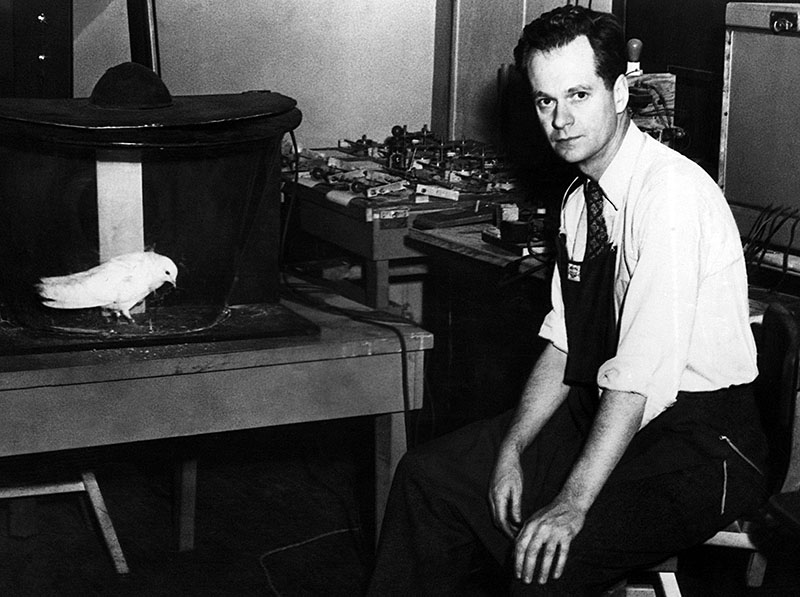Skinner, B. F. (1904-1990), was an American psychologist best known for his research into the learning process and his belief in a planned society. Skinner was a leading supporter of programmed instruction, in which the principles of learning determined in the laboratory are applied to classroom teaching. He also became known as a student of behavioral psychology, the study of the observable behavior of human beings. In a popular book, Walden Two (1948), Skinner described his idea of an ideal planned society based on principles of learning. In Beyond Freedom and Dignity (1971), he called for restriction of individual freedoms that hinder the development of the ideal planned society.

Burrhus Frederic Skinner was born on March 20, 1904, in Susquehanna, Pennsylvania. He graduated from Hamilton College in 1926. He became interested in the work of the American behavioral psychologist John B. Watson and the Russian physiologist Ivan P. Pavlov. Skinner received a Ph.D. in psychology from Harvard in 1931. He then spent several years studying animal learning and the functions of the central nervous system. In 1936, he joined the faculty of the University of Minnesota. During World War II (1939-1945), he designed his first “baby box,” a controlled environmental chamber for infants. His daughter Deborah spent part of her first two years in a chamber.
In 1945, Skinner became chairman of the Department of Psychology at Indiana University. He joined Harvard’s Department of Psychology in 1948. He died on Aug. 18, 1990.
